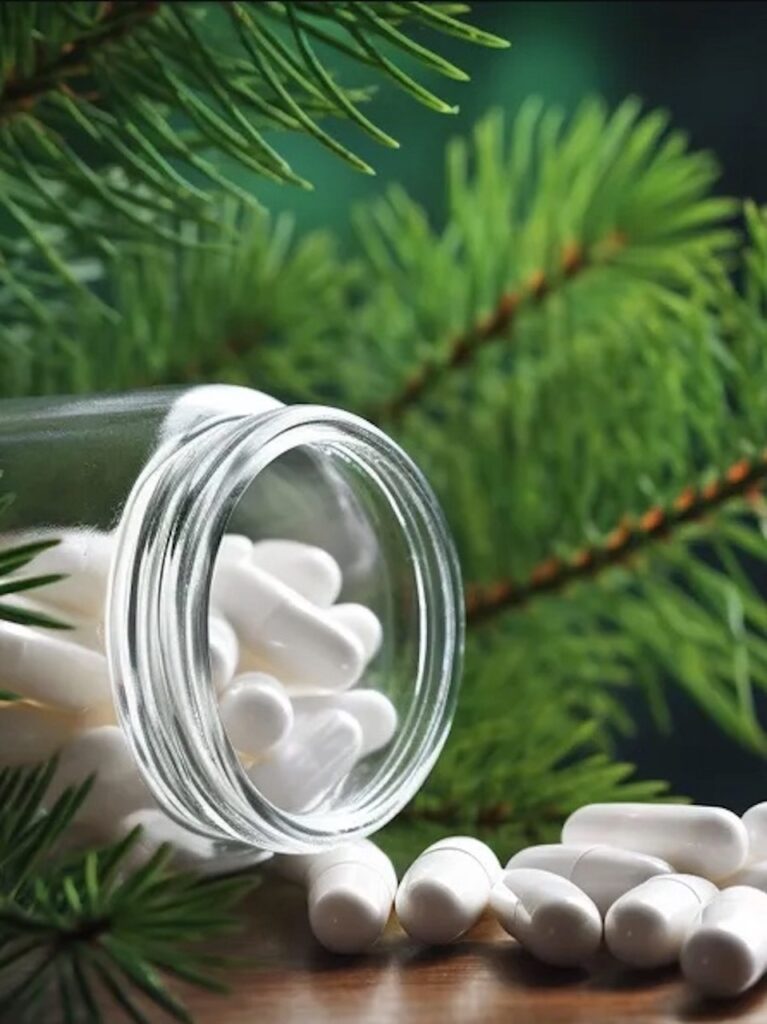When most people think of the pharmaceutical industry, there is often no association between producing life-saving drugs (ibuprofen) and environmental impact. But according to a 2019 study by The Conversation, pharmaceutical companies produce more tonnes of carbon dioxide than the automotive industry.
“According to our calculations, the pharmaceutical market is 28 per cent smaller but 13 per cent more polluting than the automotive sector,” said the State of the pharmaceutical industry website in 2015. In other words: pharmaceutical companies need to reduce their carbon footprint for the health of the planet and everyone on it. Fortunately, a group of scientists from the University of Bath in the UK may have found a way to achieve the ambitious goal.
The research study
In a study published in the journal ChemSusChem, the team describes a process to convert β-pinene, a component found in turpentine, into pharmaceutical precursors that they then used to synthesize paracetamol and ibuprofen. Most companies producing these painkillers currently use chemical precursors derived from crude oil. Turpentine is a waste by-product that the paper industry produces on a scale of more than 350,000 tonnes per year.
The researchers claim to have also successfully used turpentine to synthesize 4-HAP, a precursor to beta-blockers, salbutamol, an asthma inhalation drug, and a range of household cleaners. In addition to being more sustainable, the team’s ‘bio-refinery’ process could lead to lower drug costs for consumers as turpentine is not subject to the same geopolitical pressures that can cause energy and oil prices to skyrocket.
However, a significant pitfall of the process in its current form is that it costs more to produce drugs with turpentine than crude oil. The team suggests consumers may be willing to pay slightly higher prices for more sustainable drugs. An assumption that remains to be verified. The researchers hope that this more sustainable, ‘biorefinery’ approach could replace the need for crude oil products in the chemical industry.

More sustainable – ibuprofen
“Using oil to make pharmaceuticals is unsustainable – not only is it contributing to rising CO2 emissions, but the price fluctuates dramatically as we are greatly dependent on the geopolitical stability of countries with large oil-reserves, and it is only going to get more expensive,” commented Dr Josh Tibbetts, Research Associate in the University’s Department of Chemistry. This novel bio renewable turpentine-based product has benefits for production, including being easier to scale up. The biorefinery method uses continuous flow reactors instead of chemicals being placed in a large reactor to create separate product batches.
Therefore, the drop-in feedstock replacement could produce sustainable aromatic products. Specifically, both synthetic routes use Pd(0) catalysed reactions to aromatise the cyclohexenyl rings of key intermediates to produce the benzenoid ring systems of paracetamol and ibuprofen. The research developing the turpentine (pine-based) painkillers was funded by the Engineering and Physical Sciences Research Council.



